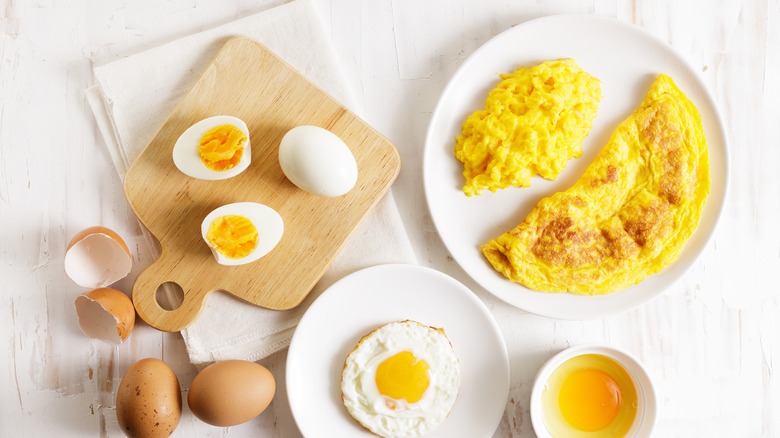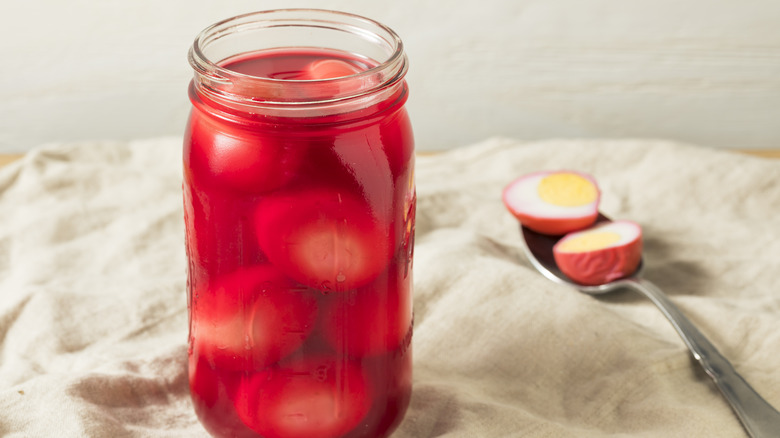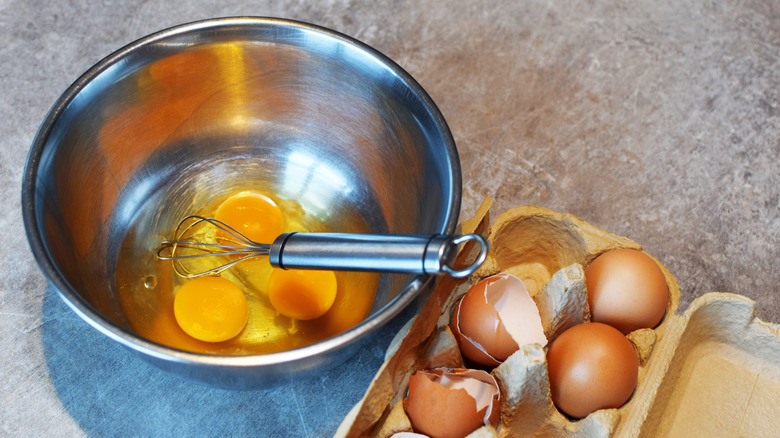Two Safe Methods To Preserve Eggs
Jacques Pépin once said, "Eggs are delicious and versatile. They're also beautiful and very secret. The ultimate comfort food" (via Kitchn). A fresh supply of eggs is so desirable that even folks in the suburbs have gone to the trouble of raising chickens in their own backyards (via The Poultry Site).
The versatility of eggs leads people to keep a carton handy at home at all times, and they are nearly always worth picking up during a trip to the store. And while store-bought ones will last up to five weeks in the refrigerator according to the USDA, that may not be long enough depending on what you're making, and many folks throw them away before they're ever used. That doesn't mean, however, that you can't make them last a little longer. The National Center for Home Food Preservation says that canning eggs safely is a no-go, but with some creativity and attention to detail, you have a couple of options for preserving eggs safely.
Pickle those eggs
Pickled eggs are one method of preserving the little treasures beyond their immediate shelf life. The best way to pickle them is to hard boil them first and then use a simple solution that includes vinegar, salt spices, and seasonings, according to the University of Nebraska. The eggs should be fresh, no more than a few days old, and have intact and clean shells. Once the eggs are cooked, simply place them in a clean canning jar and cover them with the pickle solution.
You can begin enjoying the eggs within a few hours after pickling according to Belly Full, but the eggs will reach peak flavor about a week after they're put in the jar. The best part? They'll last for up to three months if they're refrigerated properly. Pickled eggs should never be stored above 40 degrees, so refrigeration is absolutely necessary.
With a tangy, zesty flavor, and with a myriad of ways to flavor them for pickling, they taste great on salads or avocado toast, or even as a quick protein snack.
Freezing the eggs
The other method for preserving eggs is to freeze them. To do it, simply crack the egg open, whisk it, and pour it into a freezer-safe container. According to Add a Pinch, there's no better method for adding longevity to your eggs, because once frozen, they are good for up to a year. The USDA says it's generally not safe to freeze eggs in their shells because they are prone to cracking, risking exposure. The agency also points out that even if the shell is intact, a whole frozen egg's consistency won't return to normal.
Because you've whisked them, you won't be making sunny-side up or over-easy eggs, but you can prepare them scrambled, in a quiche, or add them in a baking recipe. When planning to use them, simply allow them to thaw in the refrigerator overnight, and they'll be ready to go by morning.
Preserving eggs is a creative way to keep healthy protein around a little bit longer, and whether pickling or freezing, it's a great way to avoid food waste, and save a little money as well.


